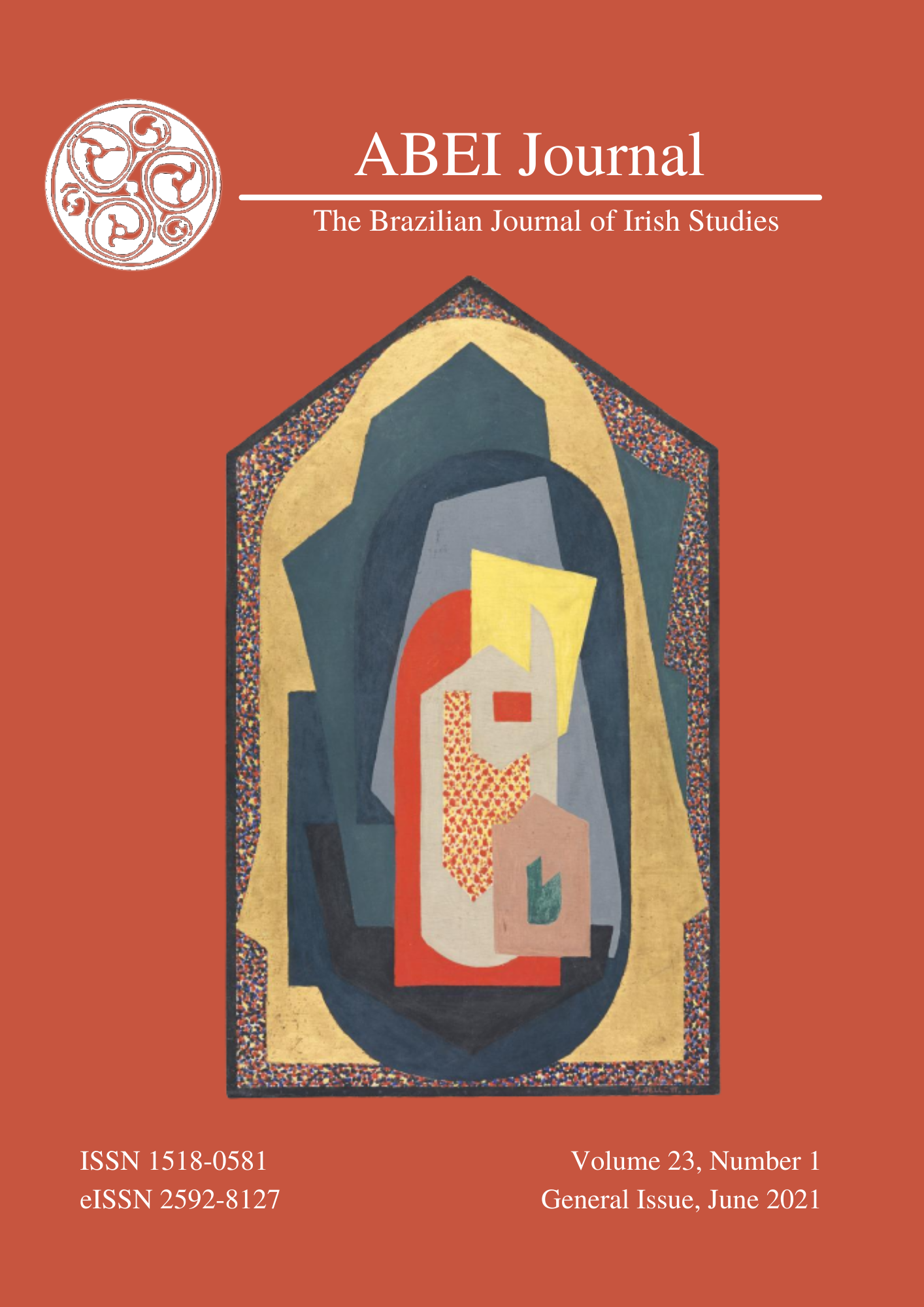“Fantasia necessária”: A presença do fantástico em Birchwood e Mefisto de John Banville
DOI:
https://doi.org/10.37389/abei.v23i1.192594Palavras-chave:
Fantástico, John Banville, Literatura irlandesa contemporâneaResumo
Entre os muitos aspectos presentes na escrita de John Banville, o fantástico se destaca. A esse respeito, dois de seus romances, demonstram ter material significativo para análise: Birchwood (1973) e Mefisto (1986). Além da repetição de temas como o duplo e a busca por uma força organizadora no mundo, a presença de irmãos gêmeos é outra semelhança relevante nos romances. Além disso, as teorias do fantástico certamente enriquecem a interpretação desses romances e contribuem para uma perspectiva diferente a respeito do fantástico na Irlanda. Como país natal de Banville, a Irlanda influenciou sua escrita, e por causa da prática de longa data dessa nação com a literatura fantástica e gótica, Birchwood e Mefisto podem ser considerados uma expressão contemporânea dessas tradições. As noções de fantástico quando inseridas no contexto irlandês fornecem uma análise valiosa dos romances de John Banville e uma maior compreensão da literatura irlandesa.
Referências
Banville, John. Birchwood. New York: Vintage Books, 2007. Printed.
Banville, John. Mefisto. London: Paladin, 1987. Printed.
Bolongaro, Eugenio. “The Fluidity of the Fantastic: Todorov’s Legacy to Literary Criticism.” Ticontre – Teoria, Testo, Traduzione Vol 1 (2014): 61 - 83. Web. 20 Aug 2019.
Hand, Derek. “Birchwood and The Newton Letter. Awakening from the Nightmare of Irish History.” John Banville – Exploring Fictions. Dublin: The Liffey Press, 2002. 23 - 66. Printed.
Hand, Derek. “Introduction: John Banville, Irish Modernism and Postmodernism.” John Banville –
Exploring Fictions. Dublin: The Liffey Press, 2002. 1-21. Printed.
Hand, Derek. “Mefisto, The Book of Evidence, Ghosts, The Untouchable, Eclipse. Out of Place.” John Banville – Exploring Fictions. Dublin: The Liffey Press, 2002. 115-171. Printed.
Imhof, Rüdiger. “Birchwood.” John Banville – A Critical Introduction. Dublin: Wolfhound Press, 1997. 57-77. Printed.
Johansen, Ib. “Shadows in a Black Mirror: Reflections on the Irish Fantastic from Sheridan Le Fanu to John Banville.” Nordic Irish Studies Vol 1 (2002): 51-61. Web. 27 Jun 2019.
Lelen, Halszka. “The Fantastic as a Technique of Redynamizing Mimetic Fiction.” Basic Categories of Fantastic Literature Revisited. Ed. Andrzej Wicher, Piotr Spyra and Joanna Matyjaszczyk. Newcastle: Cambridge Scholars Publishing, 2014. 8-24. Printed.
O’Connell, Mark. “The Weight of Emptiness: Narcissism and the Search for the Missing Twin in John Banville’s ‘Birchwood and Mefisto.’” Irish University Review Vol 40 Nº2 (2010): 129-147. Web. 20 Aug 2019.
Schwall, Hedwig. “An Iridescent Surplus of Style: Features of the Fantastic in Banville’s ‘The Infinites.’” Nordic Irish Studies Vol 9 (2010): 89-107. Web. 27 Jun 2019.
Stewart, Bruce. “Introduction.” That Other World – The Supernatural and the Fantastic in Irish Literature and its Context. Ed. Bruce Stewart. Gerrards Cross: Colin Smythe, 1998. 1-7. Printed.
Downloads
Publicado
Edição
Seção
Licença
Direitos autorais (c) 2021 Natália Bergamin Retamero

Este trabalho está licenciado sob uma licença Creative Commons Attribution-NonCommercial 4.0 International License.


